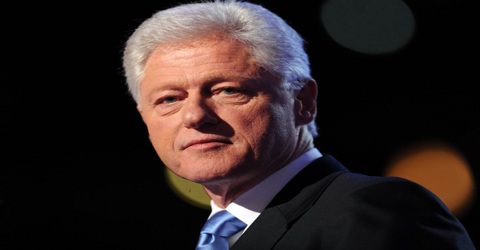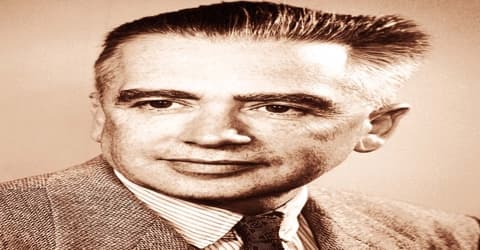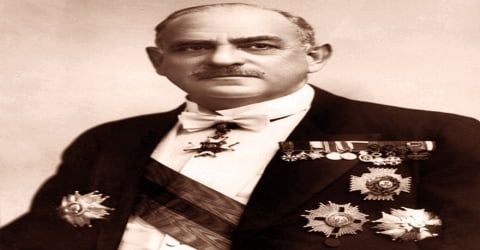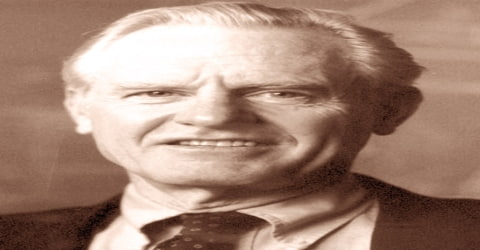Bill Clinton – 42nd President of the United States
Full Name: William Jefferson Blythe III
Date of birth: August 19, 1946 (age 70)
Place of birth: Hope, Arkansas, U.S.
Parents: William Jefferson Blythe Jr.
Virginia Cassidy
Political party: Democratic
Spouse(s): Hillary Rodham (m. 1975)
Children: Chelsea Clinton
Residence: Chappaqua, New York
Early Life
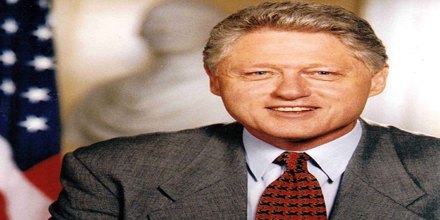
William Jefferson Clinton, better known as Bill Clinton, was born on August 19, 1946, in Hope, Arkansas, U.S. He is an American politician who served as the 42nd President of the United States from 1993 to 2001. Clinton was the 40th Governor of Arkansas from 1979 to 1981 and 42nd Governor from 1983 to 1992, and Arkansas Attorney General from 1977 to 1979. A member of the Democratic Party, ideologically Clinton was a New Democrat, and many of his policies reflected a centrist “Third Way” political philosophy.
Clinton was elected President in 1992, defeating incumbent George H. W. Bush. At age 46, Clinton was the third-youngest president, and the first from the Baby Boomer generation.
Elected U.S. president in 1992, Clinton enacted such legislation as the Family and Medical Leave Act and oversaw two terms of economic prosperity. He was impeached by the House of Representatives in 1998 following the revelation of his affair with Monica Lewinsky, but was acquitted by the Senate in 1999. Since leaving office, Clinton has remained on the global stage by working with the Clinton Foundation and campaigning for his wife, Hillary Clinton, who ran for U.S. president in the 2008 and 2016 elections.
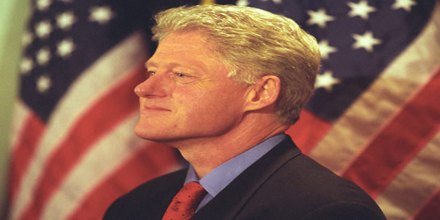
Clinton left office with the highest end-of-office approval rating of any U.S. President since World War II. Since then, Clinton has been involved in public speaking and humanitarian work. Clinton created the William J. Clinton Foundation to address international causes, such as the prevention of AIDS and global warming.
In 2009, Clinton was named the United Nations Special Envoy to Haiti, and after the 2010 Haiti earthquake, Clinton teamed with George W. Bush to form the Clinton Bush Haiti Fund. Since leaving office, Clinton has been rated highly in public opinion polls of U.S. Presidents.
Childhood and Educational Life
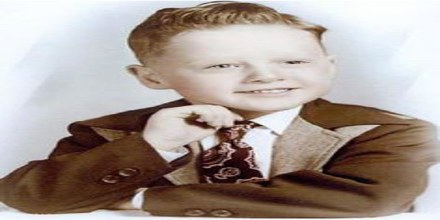
William Jefferson Clinton was born in Hope, Arkansas, on August 19, 1946. He was a fifth-generation Arkansan. His mother, Virginia Kelly, named him William Jefferson Blythe III after his father, who died in a car accident before his son’s birth. When Bill was four years old, his mother left him with her parents while she trained as a nurse.
When Bill was eight, his mother married Roger Clinton. The family moved to Hot Springs, Arkansas, where they lived in small house with no indoor plumbing. Bill’s stepfather was an alcoholic, and family life was frequently disrupted by domestic violence. When he was fifteen, Bill warned his stepfather never to hit his mother or half-brother, Roger Jr., again. “That was a dramatic thing,” Clinton recalled years later in an interview with Time magazine. Despite his rocky relationship with his stepfather, Bill changed his last name to Clinton as a teenager.
In Hot Springs, Clinton attended St. John’s Catholic Elementary School, Ramble Elementary School, and Hot Springs High School—where he was an active student leader, avid reader, and musician. Clinton was in the chorus and played the tenor saxophone, winning first chair in the state band’s saxophone section.
Upon graduating from high school in 1964, Clinton enrolled at Georgetown University to study international affairs. He immediately thrust himself into university politics, serving as the president of his freshman and sophomore classes, though he lost the election for student body president as a junior. The political hopeful also began working as a clerk for the Foreign Relations Committee under Senator Fulbright, one of Congress’s most outspoken critics of the Vietnam War. Clinton came to share Fulbright’s view that the war was both immoral and contrary to the country’s best interests.
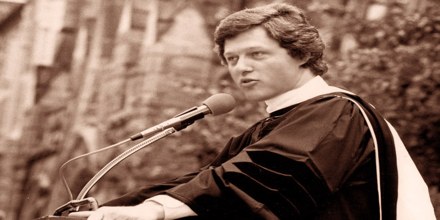
Prior to graduating from Georgetown in 1968, Clinton won a highly prestigious Rhodes Scholarship to study for two years at Oxford University. However, in the spring of 1969, Clinton received his draft notice and was forced to return to Arkansas. Clinton avoided military service by enrolling in the ROTC program at the University of Arkansas Law School, but instead of attending law school that fall, he returned to Oxford (and later claimed he had permission to do so). Feeling guilty about his decision to avoid the draft, Clinton resubmitted his name to the draft board, but he received a high enough lottery number to assure that he would not have to serve in Vietnam.
Clinton returned to the U.S. in 1970 to matriculate at Yale Law School.
Personal Life
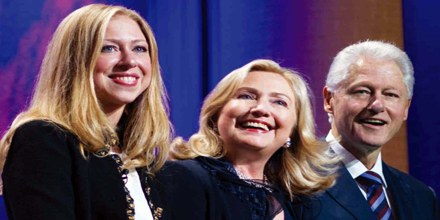
Clinton is married to Hillary Rodham (Clinton), who served as United States Secretary of State from 2009 to 2013, who was a Senator from New York from 2001 to 2009, and who was the Democratic nominee for President of the United States in 2016. Both Clintons earned law degrees from Yale Law School, where they met and began dating. As Governor of Arkansas, Clinton overhauled the state’s education system, and served as chairman of the National Governors Association.
The pair graduated from Yale in 1973 and married two years later in 1975. They had their only child, a daughter named Chelsea, in 1980.
Political Career
Arkansas Governor
After graduating from Yale, the Clintons moved to Arkansas, where Bill began teaching at the University of Arkansas School of Law in Fayetteville and thrust himself into politics. In 1974, he challenged Republican incumbent John Paul Hammerschmidt for his seat in the U.S. House of Representatives. Clinton lost the race, but it was closer than expected, and the campaign marked him as a rising star of the Arkansas Democratic Party. Two years later, Clinton was elected state attorney general, and then in 1978, at the age of 32, he easily defeated Republican Lynn Lowe to become the youngest governor in the country.
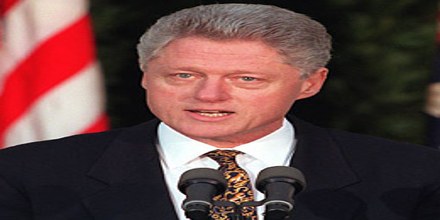
In 1980 he ran for reelection as governor but lost to Republican Frank White (1933–). When Clinton campaigned for election in 1982 against White, he explained that he had learned the importance of adaptability and compromise. He received 55 percent of the vote and once again became governor of Arkansas.
While Clinton was governor of Arkansas, he pushed for the reform of schools, health care, and welfare. He also continued to be active in Democratic national politics. In 1991 he was voted most effective governor by his peers and was chosen to head the Democratic Leadership Conference. That same year Clinton announced that he was entering the 1992 race for president.
Seeking to increase his national profile, Clinton served as chairman of the National Governors Association from 1986-87, and at the end of the decade he became chair of the Democratic Leadership Council, a group of moderate Democrats seeking to move the party in a centrist direction. However, at the 1988 Democratic National Convention, Clinton squandered an opportunity to announce himself as an obvious future presidential candidate when he delivered an excruciatingly long and boring nomination speech for Michael Dukakis. In a skillful bit of political damage control, Clinton quickly made fun of his disastrous speech on The Tonight Show with Johnny Carson.
U.S. Presidency
Clinton had much competition for the Democratic nomination for president. He came from a small state that many people thought of as unsophisticated and underdeveloped. Critics felt that his lack of experience in national government gave him little understanding of foreign policy. Clinton, however, insisted that he had a fresh point of view to bring to government.
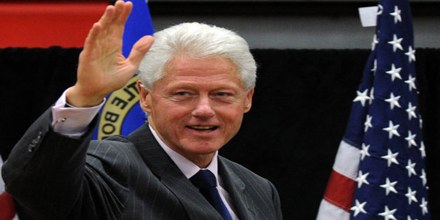
In 1992, Clinton easily defeated his competitors in the Democratic primaries to become the party’s nominee for the presidency, choosing Tennessee Senator Al Gore as his vice presidential running mate. The Republican incumbent, President George H.W. Bush, was vulnerable in the election of 1992 because he had broken his celebrated campaign promise not to raise taxes and, especially, because the national economy was mired in recession.
Although Clinton’s campaign was troubled by accusations of draft dodging and rumors of marital infidelity, he managed to turn the narrative by portraying himself as a hard-working, family man. Additionally, he successfully hammered home his economic message, underscored by chief strategist James Carville’s pithy slogan, “It’s the economy, stupid.” Clinton was also aided by the surprisingly successful third-party campaign of billionaire Ross Perot, who siphoned off a significant portion of the Republican vote from President Bush. On November 3, 1992, Bill Clinton was elected the 42nd president of the United States.
Once in office Clinton continued to work on economic issues, and interest rates and unemployment began to drop. He also appointed his wife to be the head of a task force to explore national health care reform. He supported the 1993 North American Free Trade Agreement (NAFTA), which made a single trading unit of the United States, Canada, and Mexico.
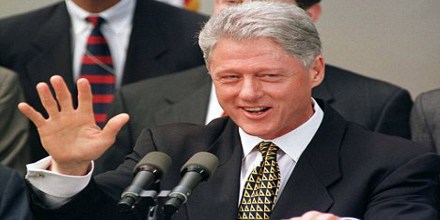
Despite several notable accomplishments, including the Family and Medical Leave Act of 1993, the implementation of the “Don’t Ask Don’t Tell” policy for LGBT military personnel and the ratification of the North American Free Trade Agreement, Clinton’s first years in office left him politically vulnerable. Through a task force headed by First Lady Hillary Clinton, he endorsed a massive health care reform act that was designed to provide universal coverage. The bill failed to move through Congress, however, and became a massive political disaster, leading to Republicans regaining control of both houses of Congress in 1994.
Clinton’s greatest accomplishment as president was leading the nation to a period of strong economic prosperity. While Clinton was in office, the nation enjoyed the lowest unemployment rates in decades, as well as a surge in median income and a rise in home-ownership rates.
Clinton’s foreign policy achievements included presiding over the 1993 signing of the Oslo Accord between Israel and the Palestine Liberation Organization, during which the famous handshake between Yitzhak Rabin and Yasser Arafat occurred, stabilizing war-torn Bosnia through the Dayton Peace Accords and helping to end Serbia’s ethnic cleansing of Albanians in Kosovo. However, the failure of the American military mission in Somalia and subsequent inaction in the face of genocide in Rwanda, both from Clinton’s first term, stand out as major blemishes on his foreign policy record.
Reelection, scandal, and impeachment
As the end of Clinton’s first term approached, a new scandal arose. The scandal was called Whitewater, after the suspicious deal in which Clinton and his wife had bought land along the Whitewater River in Arkansas. In 1996 Clinton was elected to a second term as president. He won the election by a landslide, defeating his Republican opponent, Senator Robert Dole (1923–), with 49 percent of the popular vote and 379 electoral votes. Clinton’s second term, however, became overshadowed by the investigation into Whitewater of lawyer Kenneth Starr (1946–).
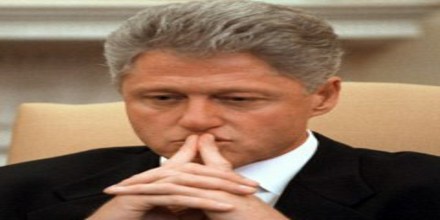
The investigation became more serious when charges of Clinton’s affair with Monica Lewinsky (1973–), a White House intern, were made public. At first Clinton denied the affair, but he later stated that he had been in an inappropriate relationship with Lewinsky. On December 19, 1998, the House of Representatives ruled to impeach Clinton, or try him in Congress for charges of lying under oath about his relationship with Lewinsky. The Senate then conducted an impeachment trial. Clinton was only the second president in U.S. history to face a Senate impeachment hearing. On February 12, 1999, the Senate found Clinton innocent. He apologized to the American people and to Congress for what he had done.
U.S. Presidency (2nd term)
In the 1996 presidential election, Clinton was re-elected, receiving 49.2 percent of the popular vote over Republican Bob Dole (40.7 percent of the popular vote) and Reform candidate Ross Perot (8.4 percent of the popular vote), becoming the first Democratic incumbent since Lyndon Johnson to be elected to a second term and the first Democrat since Franklin D. Roosevelt to be elected President more than once. The Republicans lost three seats in the House and gained two in the Senate, but retained control of both houses of the 105th United States Congress. Clinton received 379, or over 70 percent of the Electoral College votes, with Dole receiving 159 electoral votes.
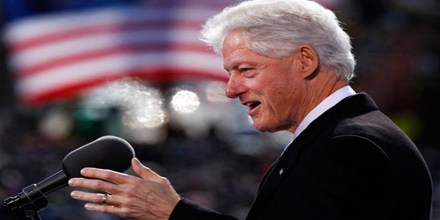
In the January 1997 State of the Union address, Clinton proposed a new initiative to provide health coverage to up to five million children. Senators Ted Kennedy—a Democrat—and Orrin Hatch—a Republican—teamed up with Hillary Rodham Clinton and her staff in 1997, and succeeded in passing legislation forming the State Children’s Health Insurance Program (SCHIP), the largest (successful) health care reform in the years of the Clinton Presidency.
Clinton became the first U.S. president to address Russia’s Duma, or lower house of parliament, on June 5, 2000. In his speech, he said that Russians did not need to fear America’s missile defense program and that their future would be vital to the twenty-first century. Later that month, he signed into law a long-awaited e-signatures bill, which gave on-line “electronic” signatures the same legal status as handwritten signatures.
The Whitewater investigation was concluded on September 20, 2000, with a statement that there was not enough evidence to prove that either Clinton or his wife had taken part in any criminal wrongdoing.
On October 16, 2000, Clinton attended an emergency meeting with Israeli Prime Minister Ehud Barak (1942–) and Palestinian leader Yasir Arafat (1929–), who wanted to come to an agreement to end ongoing violence in their countries. Barak and Arafat left the meeting with a “statement of intent” to end the violence, but neither side was completely satisfied. In that same month, Clinton sealed a major achievement of his administration by signing a bill which gave China permanent, normal trade status. This was considered the most important U.S. trade legislation since the passage of the North American Free Trade Agreement in 1993.
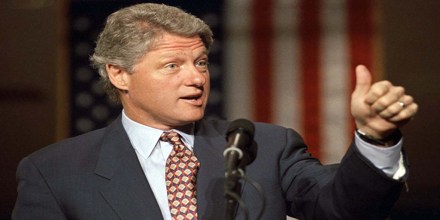
Later that year, Clinton signed into law a bill that set the blood-alcohol limit for drunkenness at 0.08 percent. This was a stricter level than most states had used previously. Supporters of the bill said that this national standard, which is used to determine whether or not a driver is legally drunk, could save hundreds of lives every year. Clinton signed another important bill into law in 2000, when he permanently established a separate reserve of heating oil for the Northeast. The law made it easier for the White House to withdraw oil from reserves in case of emergency. Finally, on November 13, 2000, Clinton began a historic journey to Asia, becoming the first American president to visit Vietnam since the Vietnam War. The purpose of the visit was to work on relations between Hanoi (the capital of Vietnam) and Washington, D.C.
Post-Presidential Career
On January 19, 2001, Clinton’s last day as president, he publicly admitted that he gave misleading testimony in the Lewinsky investigation. He faced no criminal charges, but his license to practice law was suspended. Clinton was also ordered to pay a $25,000 fine and admit that he had broken one of the Arkansas Bar’s rules of conduct.
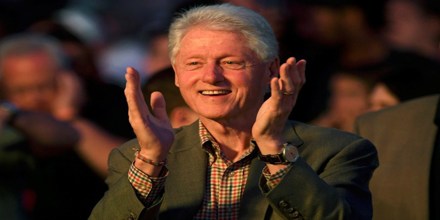
In the years since his presidency concluded in 2001, Bill Clinton has remained active on the global stage. Through the William J. Clinton Foundation (founded in 1997 and later renamed the Clinton Foundation), he created the Clinton Climate Initiative, dedicated to supporting research to combat climate change; the Clinton Global Initiative, which connects entrepreneurs and world leaders to foster new ideas and action; and the Haiti Fund, dedicated to rebuilding Haiti in the aftermath of its devastating 2010 earthquake. According to Clinton, the foundation’s mission is “to alleviate poverty, improve global health, strengthen economies and protect the environment, by fostering partnerships among governments, businesses, nongovernmental organizations and private citizens.”
Clinton showed his support for the Democratic 2012 election candidates, incumbents President Barack Obama and Vice President Joe Biden, at the 2012 Democratic National Convention. In his speech at the convention, Clinton said that he wanted Obama to be the standard-bearer of the Democratic Party, calling him a president who’s “cool on the outside, but who burns for America on the inside.” The speech garnered wide success for Clinton in the form of positive news reports and social-network posts by fans.
Campaigning for Hillary Clinton
Having previously served as secretary of state under the Obama administration, Hillary Clinton eventually launched a new campaign to be elected commander-in-chief. In July 2016, she became the official Democratic nominee for the American presidency, becoming the first woman in the U.S. to win a major political party’s presidential nomination. During the Democratic National Convention, Bill, who had previously campaigned on behalf of his wife, spoke at length about the history of their dating and marriage, her Civil Rights work, her work on behalf of children, her commitment to diversity and the disenfranchised, her professional dedication as a public servant and her overall tenacity. “For this time, Hillary is uniquely qualified to seize the opportunities and reduce the risks we face, and she is still the best darn change maker I have ever known,” he said in his speech.
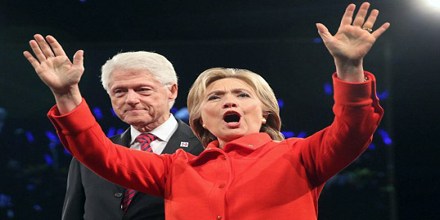
After one of the most contentious presidential races in U.S. history, during which the Clinton Foundation came under attack as a “pay-for-play” service for the rich and powerful, Republican Donald Trump earned the majority of electoral votes and defeated Hillary Clinton on November 8, 2016.
The day following the election, Bill Clinton, daughter Chelsea and her husband, along with vice presidential running mate Tim Kaine and his wife, stood behind Hillary Clinton as she delivered an emotional concession speech. “Our campaign was never about one person, or even one election,” Hillary Clinton told her supporters. “It was about the country we love and building an America that is hopeful, inclusive, and big-hearted. We have seen that our nation is more deeply divided than we thought. But I still believe in America, and I always will. And if you do, then we must accept this result and then look to the future. Donald Trump is going to be our president. We owe him an open mind and the chance to lead. Our constitutional democracy enshrines the peaceful transfer of power.”
Honors and Recognition
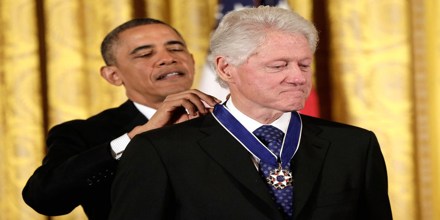
Various colleges and universities have awarded Clinton honorary degrees, including Doctorate of Law degrees and Doctor of Humane Letters degrees. He is an Honorary Fellow of University College, Oxford, which he attended as a Rhodes Scholar, although he did not complete his studies there. Schools have been named for Clinton, and statues have been built to pay him homage. U.S. states where he has been honored include Missouri, Arkansas, Kentucky, and New York. He was presented with the Medal for Distinguished Public Service by Secretary of Defense William Cohen in 2001. The Clinton Presidential Center was opened in Little Rock, Arkansas in his honor on December 5, 2001.
He has been honored in various other ways, in countries that include the Czech Republic, Papua New Guinea, Germany, and Kosovo. The Republic of Kosovo, in gratitude for his help during the Kosovo War, renamed a major street in the capital city of Pristina as Bill Clinton Boulevard and added a monumental Clinton statue.
He was also honored with a Grammy Award for Best Spoken Word Album for Children, a J. William Fulbright Prize for International Understanding, a TED Prize (named for the confluence of technology, entertainment and design), and was named as an Honorary GLAAD Media Award recipient for his work as an advocate for the LGBT community.
Clinton was selected as Time’s “Man of the Year” in 1992, and again in 1998, along with Ken Starr. From a poll conducted of the American people in December 1999, Clinton was among eighteen included in Gallup’s List of Widely Admired People of the 20th century.
U.S. President Barack Obama awarded Clinton the Presidential Medal of Freedom on November 20, 2013.
